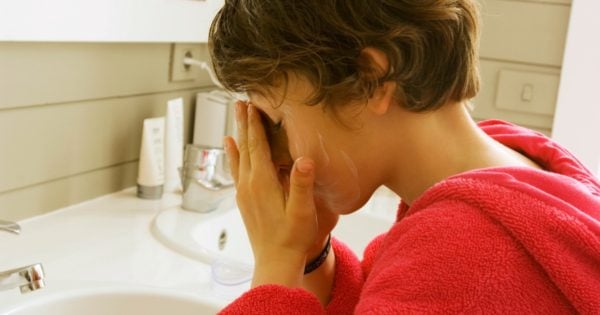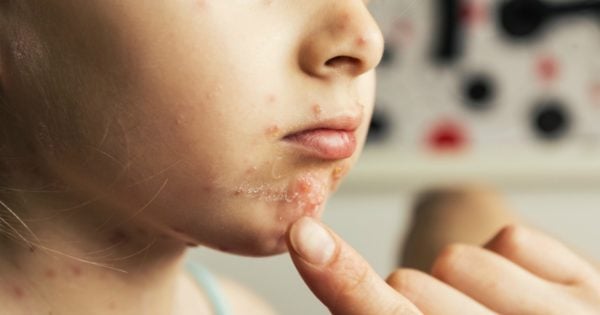It’s a dilemma many parents face.
You notice pimples on your child’s face. You’re concerned and want to help, but they haven’t said anything to you about it. Do you mention it or leave it, for fear of making them self-conscious if it’s not bothering them?
“Bring it up sooner rather than later. The longer you leave it, the harder it gets,” says Professor Rodney Sinclair of Melbourne’s Sinclair Dermatology.

"The aspect of acne that's irreversible is scarring, so if they are getting scarring then it's automatically time to bring it up and arrange for them to be seen [by a GP].

